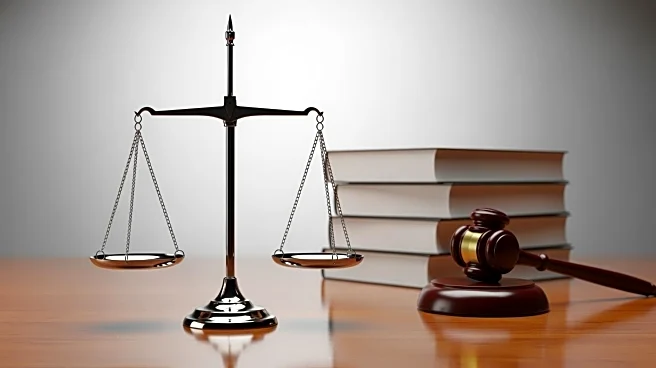What's Happening?
A law firm has been ordered to pay wasted costs after it cited two fictitious cases generated by artificial intelligence (AI) in a legal application. The firm was representing a former student in a claim against Birmingham City University for breach of
contract, negligence, and fraud. The application, submitted on July 10, 2025, included references to cases that did not exist. The university's solicitors, JG Poole & Co, requested copies of these cases but received no response. Subsequently, the application was withdrawn and resubmitted without the fictitious cases, with the firm claiming the initial submission was an error. The court struck out the claim and application on July 30, 2025, with indemnity costs, and adjourned the issue of false citations and wasted costs. The claimant's solicitor admitted the cases were AI-generated and blamed an administrative team member for drafting the application using AI without verification or consent.
Why It's Important?
This incident underscores the growing concerns about the use of AI in legal settings, particularly the risks associated with relying on AI-generated information without proper verification. The court's decision to impose wasted costs highlights the legal profession's responsibility to ensure accuracy and integrity in legal documents. The case serves as a cautionary tale for law firms and legal practitioners about the potential pitfalls of using AI tools without adequate oversight. It also raises broader questions about the role of AI in the justice system and the need for guidelines to prevent similar occurrences, which could undermine trust in legal processes.
What's Next?
The ruling by His Honour Judge Charman, which has yet to be published, may prompt further scrutiny of AI's role in legal research and documentation. Legal professionals and firms might need to implement stricter protocols for verifying AI-generated content to avoid similar issues. The case could lead to discussions within the legal community about establishing standards for AI use in legal practice. Additionally, the incident may influence future court decisions regarding the admissibility of AI-generated evidence and the accountability of legal practitioners in ensuring the accuracy of their submissions.
Beyond the Headlines
The case highlights ethical considerations in the use of AI within the legal industry. It raises questions about the responsibility of legal professionals to verify information and the potential consequences of failing to do so. The incident may lead to increased calls for regulatory frameworks governing AI use in legal contexts, balancing innovation with the need for accuracy and accountability. It also reflects broader societal concerns about the reliability of AI-generated information and its impact on professional fields.
















